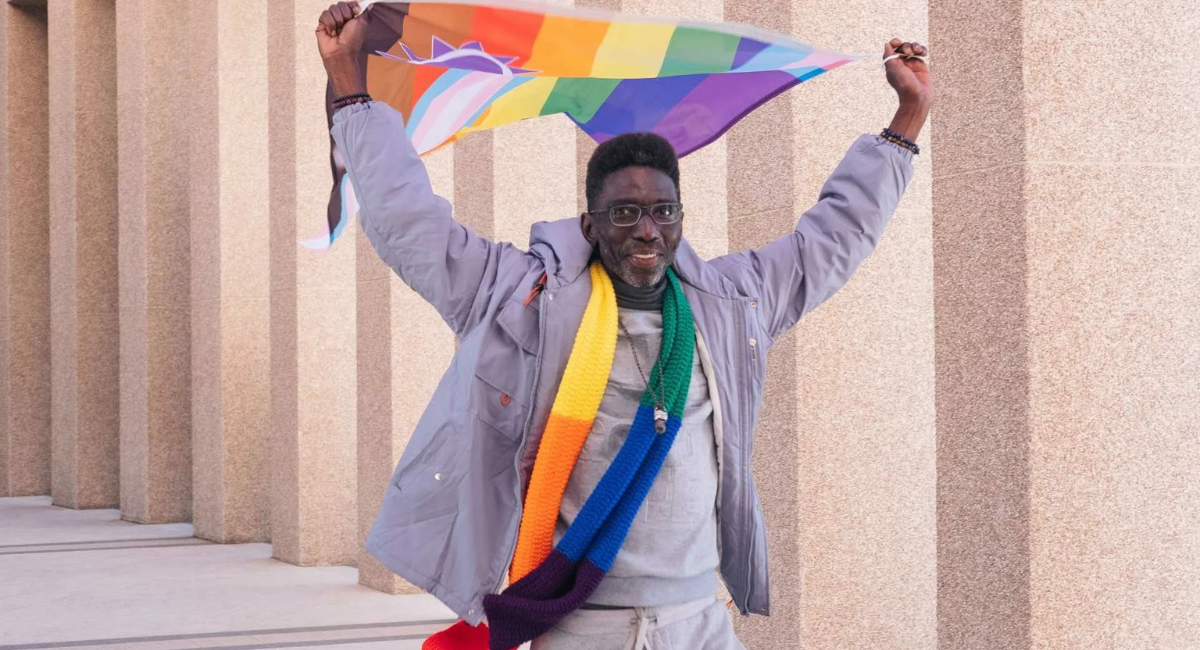Namibian LGBTQ+ activist Friedel Dausab.
Friedel Dausab, who successfully led a legal case against the criminalisation of gay men in Namibia last year, is joining the Kaleidoscope Trust’s new commission.
by Beza Lealem
Namibian activist Friedel Dausab has been appointed leader of a new initiative that will fight the recent global rollback of LGBTQ+ rights. UK-based international charity Kaleidoscope Trust launched the commission at its annual Pride parliamentary reception in June.
“We are honoured to announce the first commissioner of The Global LGBTI+ Rights Commission: Friedel Dausab — a passionate advocate for LGBTI+ rights and the lead figure in the landmark legal case that overturned Namibia’s anti-LGBTI+ legislation,” wrote the Kaleidoscope Trust in a recent Instagram post.
The trust’s chief executive, Alex Farrow, said the commission was “both a research body and a rallying cry.” According to a Pink News report, “during the 18 months it is set to run, the commission will investigate what factors are driving the rising anti-LGBTQ+ backlash, produce strategic recommendations and offer a road map for governments, civil society, and international institutions committed to reversing the trend.”
Dausab, a former flight attendant for Air Namibia who spent two years working in the UK, became an activist after returning to Namibia. He first joined the charity IBIS/the World University Service, where he was involved in sexual health programmes for LGBTQ+ people including mental health programmes for those living with HIV+. He later joined Positive Vibes Trust, the Rainbow Project and OutRight Namibia, a national LGBTQ+ organisation where he served as executive director.
Dausab’s appointment to the new international commission is expected to embolden campaigners inspired by his work. His Namibian court case, with backing from British charity Human Dignity Trust, resulted in a landmark ruling for gay rights in the southern African nation where colonial-era laws banning same-sex acts between men (offences of “sodomy” and “unnatural sexual offences”) were ruled unconstitutional last year.
“It won’t be a crime to love anymore,” Dausab told the BBC, reacting to the verdict of the high court in Namibia’s capital Windhoek last year. “I no longer feel like a criminal on the run in my own country simply because of who I am.”
“The sword that was hanging over the heads of so many gay men and trans women has been removed through decriminalisation. Homophobes no longer have a crutch. Bigots no longer have tools in our legal system and our law that they can use to crush us,” Dausab told Context, a Thomas Reuters Foundation media service.
While some have hailed Dausab a ‘freedom fighter’, opponents of LGBTQ+ rights in Namibia have condemned his work. Dausab acknowledges there has been a backlash since the ruling. “We’ve seen a rise of hate crimes on the internet, especially on social media. We’ve [seen] lots of evictions, especially of young people and trans people,” Dausab conceded.
To complicate matters, the Namibian government has since lodged an appeal against the high court ruling, which asks the Supreme Court to “clarify whether a constitutional ban on discrimination based on sex includes sexual orientation,” Context reported in July 2025. At that time, a decision date for the appeal had not yet been set.
Last year following Dausab’s court victory, former president Nangolo Mbumba passed an act which defined a marriage as only being between two persons of the opposite sex, in a bid to thwart the further advancement of LGBTQ+ rights. All eyes are now on Netumbo Nandi-Ndaitwah, the country’s first female president who took office in March, to see what stance the new government takes on LGBTQ+ issues.
In the meantime, “we hope the Supreme Court underlines that the constitution protects every single human being in Namibia, despite their sexual orientation or gender identity, and that cannot be reversed,” Dausab said.

